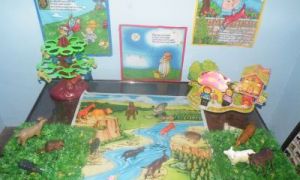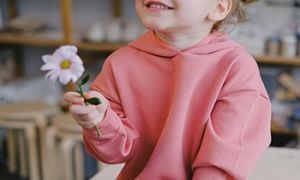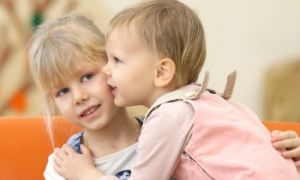

Here are 5 gentle, emotionally intelligent, story-based resources designed to help young children understand body boundaries, safe adults, and protective behaviors.
Talking to young children about child protection is one of the most powerful ways to build their sense of safety, agency, and trust. It’s not about instilling fear—it’s about giving them language, confidence, and clarity to navigate their world. Here’s how to approach it with warmth, honesty, and age-appropriate care.
More than two decades after the abduction and murder of 13-year-old Daniel Morcombe, Queensland has introduced landmark legislation aimed at strengthening child protection. Known as Daniel’s Law, the new bill establishes a public child sex offender registry, allowing families and communities to access critical safety information.
South Australia has become the first Australian state to implement a formal ban on mobile phones within early childhood services. The new regulation is designed to address concerns related to child safety, privacy, and professional conduct in early learning environments.
In an outcome met with collective relief, Victorian health authorities have confirmed that all 2000 children tested for sexually transmitted infections (STIs) in connection with alleged pedophile Joshua Dale Brown have returned negative results. The tests were conducted as a precaution after Brown, charged with over 70 offenses involving children aged five months to two years, was found to have worked across 23 childcare centres over an eight-year span.
Simple songs about consent gently introduce children to concepts like body autonomy, boundary-setting, and respectful communication in ways that feel playful, affirming, and easy to remember. By pairing repetitive rhymes with hand motions, call-and-response, and relatable scenarios, these songs help children internalize messages such as “I can say no,” “I ask before I touch,” and “My voice matters.” Whether used in circle time, transition moments, or home routines, they offer educators and families an emotionally safe, joyful way to teach consent from the ground up.
Creating a safe and empowering environment for preschoolers begins with intentional, age-appropriate education around body autonomy, emotional literacy, and help-seeking skills. This article offers a collection of EYLF-aligned, trauma-informed Child Protection activities designed to foster safety, resilience, and voice in young learners.
Join Semann and Slattery for a free webinar on Tuesday, 8th July, on Protecting Children From Paedophiles and Child Abuse, with practical strategies to ensure protective mechanisms are in place.
In NSW, nominated supervisors, persons in day-to-day charge and family day care co-ordinators must complete a child protection course required by a Government protocol, by section 162A of the Children (Education and Care Services) National Law.
The Victoria's Child Safe Standards Posters are a set of mandatory requirements to protect children and young people from harm and abuse. The new 11 Child Safe Standards came into force in Victoria on 1 July 2022.
 Open ended questions cannot be responded to with one word answers such as yes or no. These types of questions enables a child to provide… Read More
Open ended questions cannot be responded to with one word answers such as yes or no. These types of questions enables a child to provide… Read More
 During your child’s preschool years, an important milestone begins to emerge. This is the development of pre-writing skills. Pre-writing skills are used to encourage, develop… Read More
During your child’s preschool years, an important milestone begins to emerge. This is the development of pre-writing skills. Pre-writing skills are used to encourage, develop… Read More
 Open ended materials enables children to play freely. They are objects that have no rules to follow, use or function. Raw materials that can be… Read More
Open ended materials enables children to play freely. They are objects that have no rules to follow, use or function. Raw materials that can be… Read More
 An Acknowledgment of the Country is a way of showing respect for the Traditional Owners and can be given by both non-Indigenous people and Aboriginal… Read More
An Acknowledgment of the Country is a way of showing respect for the Traditional Owners and can be given by both non-Indigenous people and Aboriginal… Read More
 Language plays an important role in a child’s development. It enables a child to communicate effectively with their family, learn at school, socialize with friends,… Read More
Language plays an important role in a child’s development. It enables a child to communicate effectively with their family, learn at school, socialize with friends,… Read More
 Like adults, children have to deal with their own stress in life. Moving house, starting a new school, preparing for a new sibling - these are… Read More
Like adults, children have to deal with their own stress in life. Moving house, starting a new school, preparing for a new sibling - these are… Read More
 Playdough is such a versatile material. It provides numerous benefits to children as they manipulate it, it is safe and soothing and provides children with… Read More
Playdough is such a versatile material. It provides numerous benefits to children as they manipulate it, it is safe and soothing and provides children with… Read More
 Teaching children about sustainability enables them to appreciate and respect the natural environment. Early childhood services can provide meaningful hand on learning experiences in order… Read More
Teaching children about sustainability enables them to appreciate and respect the natural environment. Early childhood services can provide meaningful hand on learning experiences in order… Read More
 Recycling is an important concept that teaches children to care for the environment. It encourages children to be responsible and show a growing appreciating for… Read More
Recycling is an important concept that teaches children to care for the environment. It encourages children to be responsible and show a growing appreciating for… Read More
 When children apply paint to paper, glue things together, or pound a lump of clay, they experiment with colour, shape design and texture.
Read More
When children apply paint to paper, glue things together, or pound a lump of clay, they experiment with colour, shape design and texture.
Read More

Open ended materials enables children to play freely. They are objects that have no rules...
See more...
There are so many wonderful ways to help children connect with nature and understand its...
See more...
Relationships with carers play a key role in determining a child’s well-being in the earliest...
See more...© 2009-2025 Aussie Childcare Network Pty Ltd. All Rights Reserved.

